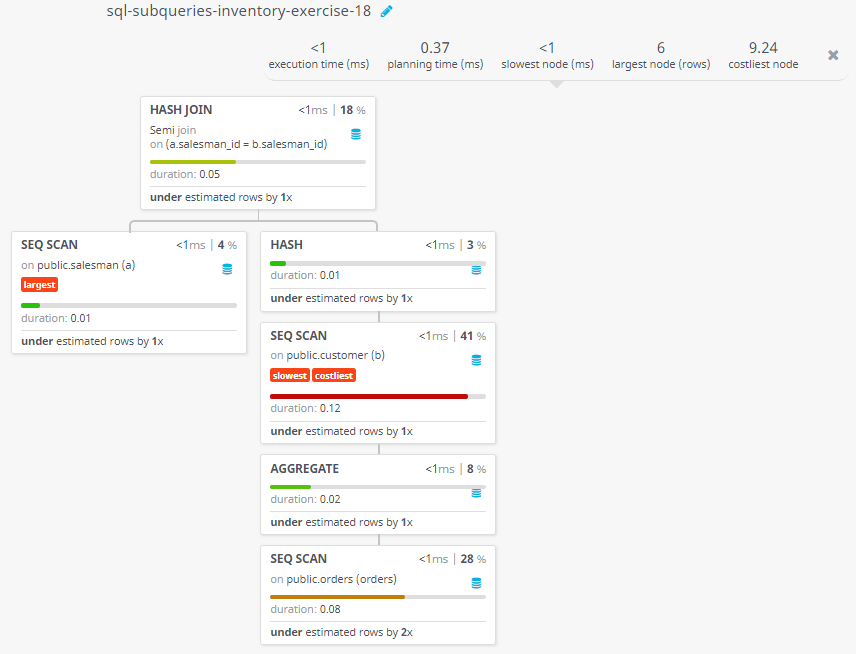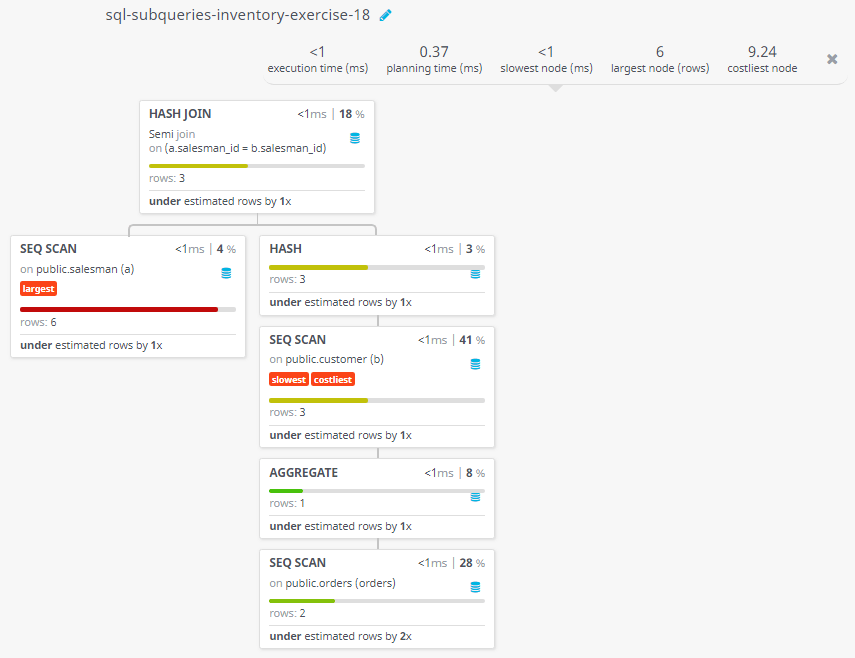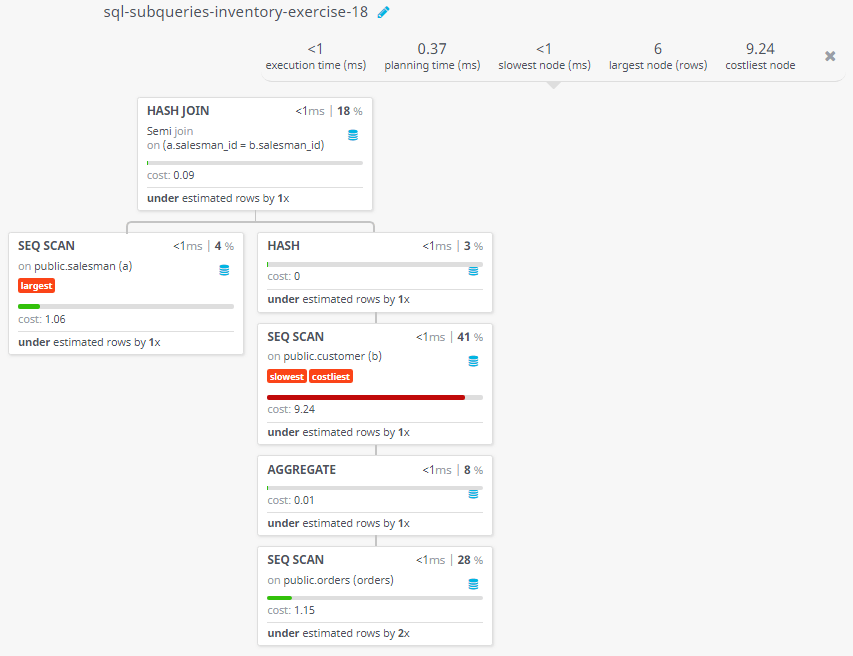SQL Subquery Exercises: Display the rows of all salesmen who have customers with more than one orders
SQL SUBQUERY: Exercise-18 with Solution
18. From the following tables write a SQL query to find the salespeople who deal the customers with more than one order. Return salesman_id, name, city and commission.
Sample table: Salesman
Sample table: Orders
Sample table: Customer
Sample Solution:
SELECT *
FROM salesman a
WHERE EXISTS
(SELECT * FROM customer b
WHERE a.salesman_id=b.salesman_id
AND 1<
(SELECT COUNT (*)
FROM orders
WHERE orders.customer_id =
b.customer_id));
Output of the Query:
salesman_id name city commission 5001 James Hoog New York 0.15 5002 Nail Knite Paris 0.13 5003 Lauson Hen San Jose 0.12
Practice Online

Query Visualization:
Duration:

Rows:

Cost:

Contribute your code and comments through Disqus.
Previous: From the following tables write a SQL query to find the salespeople who deal a single customer. Return salesman_id, name, city and commission.
Next: From the following tables write a SQL query to find the salespeople who deals those customers who live in the same city. Return salesman_id, name, city and commission.
What is the difficulty level of this exercise?
Test your Programming skills with w3resource's quiz.
SQL: Tips of the Day
SQL Server SELECT into existing table.
INSERT INTO dbo.TABLETWO SELECT col1, col2 FROM dbo.TABLEONE WHERE col3 LIKE @search_key
This assumes there's only two columns in dbo.TABLETWO - you need to specify the columns otherwise:
INSERT INTO dbo.TABLETWO (col1, col2) SELECT col1, col2 FROM dbo.TABLEONE WHERE col3 LIKE @search_key
Database: SQL Server
Ref: https://bit.ly/3y6tpA3
- New Content published on w3resource:
- HTML-CSS Practical: Exercises, Practice, Solution
- Java Regular Expression: Exercises, Practice, Solution
- Scala Programming Exercises, Practice, Solution
- Python Itertools exercises
- Python Numpy exercises
- Python GeoPy Package exercises
- Python Pandas exercises
- Python nltk exercises
- Python BeautifulSoup exercises
- Form Template
- Composer - PHP Package Manager
- PHPUnit - PHP Testing
- Laravel - PHP Framework
- Angular - JavaScript Framework
- Vue - JavaScript Framework
- Jest - JavaScript Testing Framework
